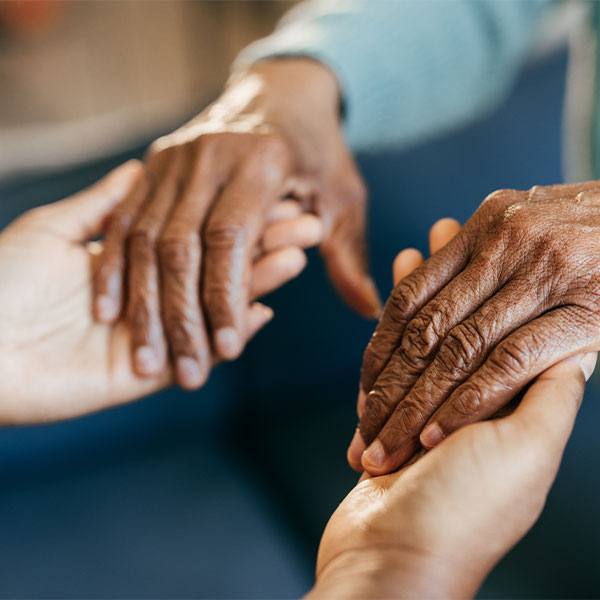-
Science Saturday: Rocketing ahead
Under his mentor’s watch, a graduate student prepared for a career in research while seeking ways to combat the effects of aging.
When describing his training as a research scientist, Bennett Childs, a newly minted Ph.D. in biochemistry and molecular biology, refers to “trajectory.” The terminology fits. He rocketed to prominence as first author on a paper chosen by Science magazine as a 2016 discovery of the year. An April 2017 graduate of Mayo Clinic Graduate School of Biomedical Sciences, Dr. Childs appears headed skyward, fueled by passion, intellect and the support of mentors, such as Jan van Deursen, Ph.D.
“I think he has a tremendous future ahead of him,” says Jan van Deursen, Ph.D., chair of Mayo’s Department of Biochemistry and Molecular Biology in Rochester, Minnesota, who has mentored dozens of young scientists.
If scientists are multistage rockets, mentors tend to be the first stage, providing the initial boost that gets a student off the ground. Young researchers often build on the work of their mentors, adding their own thrust to go farther. Drs. Childs and van Deursen are a prime example.
Dr. van Deursen is a pioneer in researching senescent cells — cells that stop dividing and simply accumulate in the body. He leads the discovery research work into cell aging for Mayo Clinic’s Center for Biomedical Discovery. Mayo’s student-centered graduate school matches the student with the right mentor. In this case, Dr. Childs says having the world’s leading authority on senescent cells as a mentor has defined him as a scientist.
“I came here to work with Dr. van Deursen, who had the resources, expertise, drive and intellectual curiosity that allowed me to perform research that was interesting to me,” he says. “I can’t imagine a better outcome.”
Discovery After Discovery
Dr. van Deursen, who earned a doctorate in cell biology in the Netherlands, came to Mayo Clinic in 1999 to conduct research on childhood cancers. Convinced that unstable chromosomes play a role in cancer, he created mouse models prone to a chromosomal abnormality — and discovered they aged five times faster than normal.
Because of their suspected link to aging, senescent cells became his focus.
Over time, his team made progress in understanding aging by studying mice. They showed that senescent cells diminish organ and tissue function. In 2011, another study by Dr. van Deursen and Mayo Clinic’s Robert and Arlene Kogod Center on Aging revealed that eliminating senescent cells could delay or prevent the onset of age-related disorders and disabilities.
“This is too good to be true,” Dr. van Deursen recalls thinking, but further studies confirmed and expanded on the research. “It’s still too good to be true,” he adds.
Science named this research one of the top 10 groundbreaking scientific achievements of 2011, saying the findings provided “some hope that banishing senescent cells might also prolong our golden years." Last on the list of Mayo authors was Dr. Childs, who ended up in Dr. van Deursen’s lab after rotating through other labs in his first year of graduate school.
Fast-forward five years. Dr. Childs was the lead author on an article that identified senescent cells as a key driver in atherosclerosis, the narrowing of arteries that can lead to heart attacks and strokes. The study, on mice, found that senescent cells promoted the development of plaque in arteries; produced two molecules that cause fatty streaks to progress to plaque; and produced enzymes that cause plaque to become unstable, increasing the risk of heat attack and stroke. The study also showed that treatment to selectively eliminate senescent cells countered all three negative effects.*
“The paper was the latest in a series from the lab on senescence and aging,” he says. “The combined body of work was being recognized. This was a mature project by the time I got involved. A lot of my work is extending what others began.”
A Mentor’s Influence
Dr. van Deursen tailored the research experience and specific projects to Dr. Childs’ career aspirations and interests. He also advised Dr. Childs on the traits he needed to develop to be successful. For example, when he first arrived, Dr. Childs wanted to do everything himself. But the Mayo Clinic Model of Research relies on collaboration to accelerate the process of discovery that provides answers to patients’ unmet needs.
“I basically said to him, ‘Hey, Bennett, this is how it works,’” Dr. van Deursen recalls, noting that his student quickly took to team-based research. “He’s very coachable. He listens and thinks about it, and then he makes a change. He’s an eager learner.”
He also had a passion for science, specifically research on aging, the leading risk factor for most chronic diseases.
“It seemed like a black box,” Dr. Childs says. “There’s not a lot known about the fundamental processes in aging. It seemed like an area ripe for discovery. There’s a lot to be learned, so I got into it at the right time.”
Dr. Childs says he aspires to be a principal investigator. For now, he plans to stay in Dr. van Deursen’s lab, where he is trying to screen old mice to determine where senescent cells collect and the effects of removing senescent cells. But the path to independence for a researcher is paved in funding. And the good news for Dr. Childs is that he has received a predoctoral fellowship from the National Heart, Lung, and Blood Institute.
“His career has been launched,” Dr. van Deursen says. “Now he has momentum.”
Where will Dr. Childs be in five or 10 years? To find the answer, think trajectory and look up.
─ Jon Holten, December 1, 2017
* Dr. van Deursen is a scientific co-founder of Unity Biotechnology, a company developing compounds that selectively eliminate senescent cells, and a co-inventor of the technology that has been licensed by Mayo Clinic to Unity Biotechnology. Mayo Clinic and Dr. van Deursen have a financial interest in the technology.









